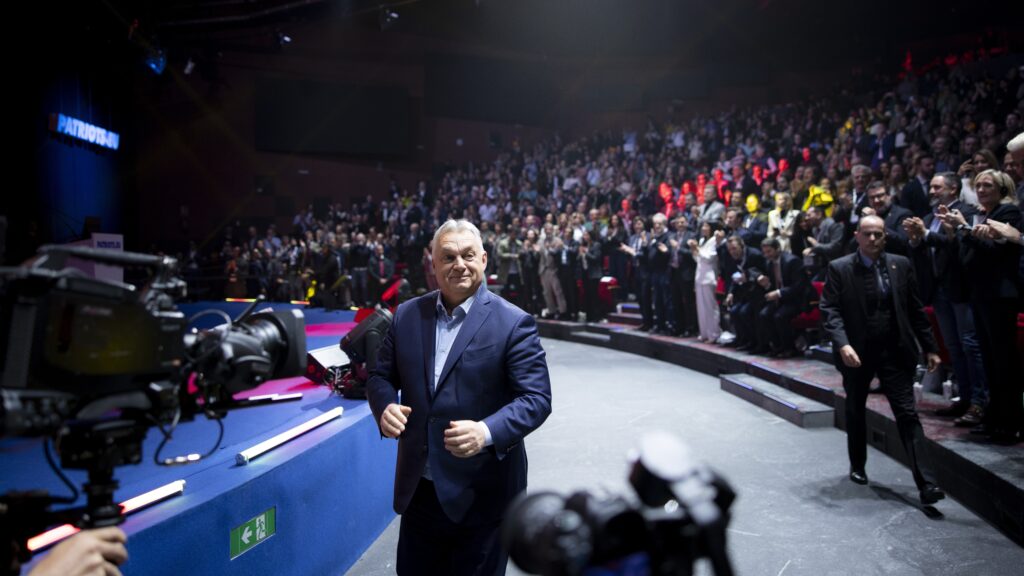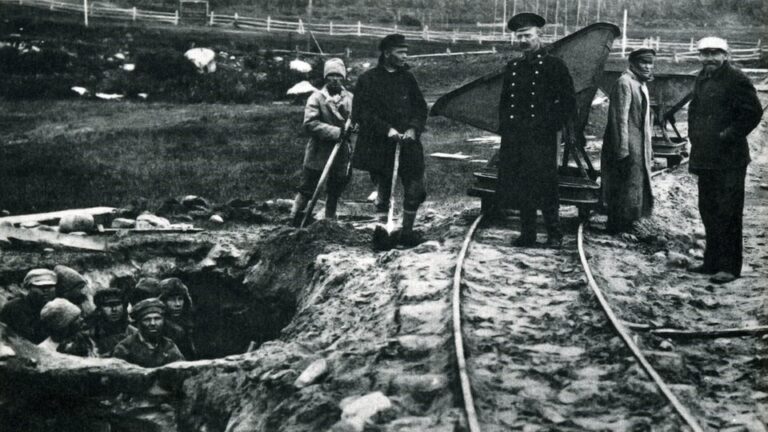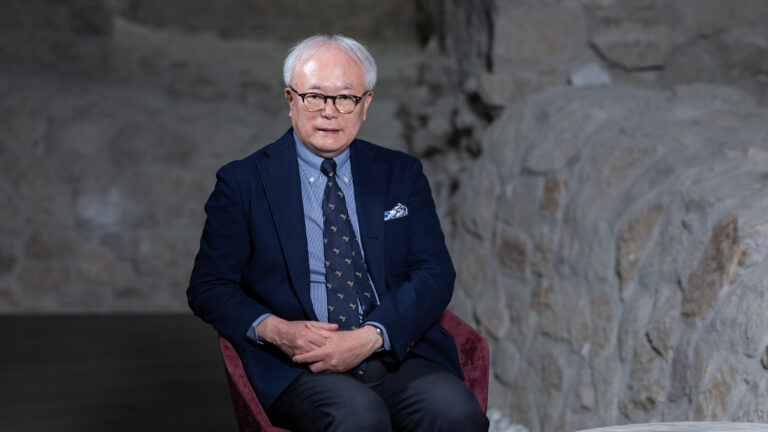A senior economist at the RAND Corporation and professor at the Pardee RAND Graduate School, Howard J. Shatz is an expert in both national security and international economy. During the MCC Budapest Summit International Conference organised by Mathias Corvinus Collegium he gave an interview to Hungarian Conservative.
Has the focus of your research or your workload been affected by the war?
Sure, RAND works on policy issues that are relevant to governments. And largely we work for the US government, but not exclusively. We’re not part of the US government, we’re a non-profit. We also work for foreign governments. Because of that, when a new policy event happens, if there is an economic issue related to it, yes—my job evolves. So, what’s happened with the war is that I still do a lot that has to do with US economy and global economy, but the added aspects are partly explanatory: What are the sanctions doing? How are they different? What are the consequences of the sanctions? How will they affect global economy, and all the different countries? That’s one area. The second area is thinking about Ukrainian reconstruction and the future. And not just about Ukrainian reconstruction, but focusing on ‘after the war is over, how do we pick up the pieces?’ What are the ways we’ve done reconstruction in the past? What are the lessons from that, are there things we should change in the future to help restore things in a very positive, productive light?
Your research focuses on the Middle East, China, and Russia from an economic perspective. We have read mixed articles about the Russian economy—it is either hurting or thriving according to the reports. What is your opinion, what do the data show?
I look at the Russian data a lot. The Russian economy has been hurting, but it is not in shambles. Russia is a big economy—compared to the US it is not, but it is a big economy. It was number 12 or 14 in the world in GDP terms. But where is Russia hurting? Number one: Imports have declined by a lot. The import of consumer goods has not declined by as much, inputs into industry and capital goods, however, have declined by a lot.
What’s happened is that we’ve seen industries decline by a great deal according to Russian statistics.
For example, automotive manufacturing has really crashed and there is a number of other industries. That’s the first thing. The second is that Russian government expenditures have gone up. For the first few months of the war, they were still running a budget surplus, Russian revenues were up. But expenditures have since gone up quite a great deal, and Russia has reserves, they can pay for this, but it doesn’t help Russian economy if their social support has gone up, their labour market support has gone up. These are temporary expenditures which don’t add to productivity. The third thing that’s causing hurt is the decline in high tech goods. So, we can see signs of problems, like with the commercial aircrafts— they’re not going to get spare parts for their Boeing or Airbus aircrafts. That means that the Russian airline industry is going to decline a great deal. And now they’re reliant on Turkish airlines and the Emirates for international flights. And they can still run internal flights, but they’re going to have to rebuild for a new industry. All of these technological goods, their access to high level semiconductors, they might be able to get some trough alternate ways, but they’re not going to get the amount that a modern functioning economy needs. And Russia could have been one, it is a high potential economy, had they done certain policies throughout the 2000’s. So that’s where Russia is hurting. Also, Europe is hurting, and that’s because of the energy costs. I did an analysis a couple of years ago about Russian energy. And
Russia is much more dependent on oil revenues than gas revenues.
If we look at the contribution to the federal budget, oil revenues were about three times as important as gas revenues. Between two or four times, it varies. Europe is much more reliant on Russia with gas. About 40 per cent of gas comes from Russia, a smaller proportion of Europe’s energy, because gas is not all of Europe’s energy. So, Europe is also hurting from the war. The US—everyone thinks that the US is benefitting from the war. I simply would not say that. The US has higher budget expenditures, the US is sending munitions to Ukraine, which they are going to have to replenish. That’s going to be costly, this is all going to be costly. It may be that some US industries are benefitting from European imports of LNG for example. But how big is the gas industry compared to the US economy? The US economy is 20-25 per cent of the global economy. It’s a 22-23 trillion-dollar economy. Does anyone think that these gas exports are going to have a huge effect on the US economy? No. So, looking at who are the beneficiaries, right now there are countries who are willing to buy Russian gas and oil at a discount. Mostly India and China and other countries. So that’s the current alignment of the world.
Another story about the US benefitting from the war recently has been that the protracted war is going to weaken Russia, and that ultimately would benefit the US.
The thing about Russia is that the US doesn’t compete with Russia. US companies do not compete with Russian companies in the global markets. US companies compete with European and Chinese companies. Russia in the global markets is an energy and commodity producer. Russian goods, Russian cars, Russian computers, software—we don’t compete with that. So, Russia can grow, Russia can shrink, it doesn’t mean much for the United States.
Obviously, Europe and Russia are struggling already, and there is significant economic damage. Hopefully someday the war is going to end, and we have to restructure and rebuild the economy. How long would it take for Europe to restabilise?
It will rebuild. Europe is a sophisticated, large and diversified economy. And we can’t underestimate how important that is. Europe is a mostly unified economy, not completely, there is protectionism inside the European Union, but in general it has economic advantages and it’s a high-scale economy. So, if we look at what needs to be rebuilt, I think that the most important thing is figuring out how to handle energy needs. And if you know what you want to do, you can do that pretty quickly. If we want to build pipelines to the east, for example to Nigeria, or the Caspian, once we know we can do that then pipelines can be built in a matter of years generally. Diversifying oil supplies: you talk to the oil producers, you explore others. If you really wanted to increase oil supplies, cooperation with Iraq to increase production there is viable. So, there are a variety of options. I think the roadblock in these is always the policy side.
Policymakers have to figure out what they want to do.
And then they have to implement it. Getting an agreement to figure out the next steps could be a long time, could be a short time, that depends. I think that if Europe can solve and redirect its energy needs, then it can go back to having all the problems it had before the war: demographic challenges, regulations—this is nothing new that Europe has to deal with. But in terms of solving the actual war consequences concentrated in energy, and other resources it buys from Russia, it would take a number of years, but it can be done.
As the last question, diving a little bit into history, can you recall any past events where two crises were stacked on each other like it happened with the Covid pandemic and the Ukraine war?
So, in a small way—a very small way, what Europe faced with the global financial crisis in 2008 and the Euro crisis in 2011-2012, that was two crises stacked on each other. Other cases where they came on top of each other could be Russia in the 1990’s, with the collapse of the Soviet Union, and the financial crisis in 97–98. Different magnitude I think, compared to what’s happening with Europe. Now that you asked the question, I believe that this is a very unusual period. And I don’t think it is unusual because of the war, we deal with wars all the time.
This is a bigger war, this is a worse war, it needs to end, but ultimately, it’s Covid.
Covid was truly unusual, so the reaction to Covid may not have been the right reaction. A lot of countries shut down, and a lot of countries did stimulus—monetary and fiscal, and that’s going to be a big overhang that we are going deal with for years. So, I think that we are in a very unusual period. We are not in a Great Depression period, where we did have subsequent crises—you had financial crises in the 20’s, trade crises and then the depression. That was probably the worst period, especially for Europe, although America in the 30’s was in bad shape, too. Maybe the 1970’s is the closest parallel, because we had the energy crisis in 1973, we had very high inflation, we had the Iran war, the revolution, the energy crisis of 1981—that was a very difficult period.







